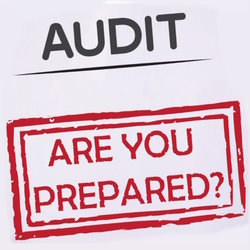Removal of Auditor before & after expiry of term | Procedure for removal
The Companies Act ensures that the independence of the auditor is safeguarded always. Therefore, provisions relating to removal of auditors are very stringent.
Table of Contents
Removal of Auditor before the expiry of term
Removal of first auditors
We know that the first auditors are appointed by the Board of Directors. To remove the first auditors, an ordinary resolution is to be passed at the shareholders meeting. If another person is proposed to be appointed in his place, at least 14 days notice is required.
Removal of other Statutory auditors
The auditors can be removed, before the expiry of their term, by the company in a general meeting only with the prior approval of the Central Government. This provision prevents unjust removal of auditors.
Removal of Auditor after expiry of term
After the expiry of the term of office, an auditor, is usually automatically reappointed. However, if the company decides not to re-appoint the existing auditor, the following procedure has to be followed.
Procedure for Removal
1. Special notice: The shareholder who intends to remove the auditor, shall give 14 days notice (Special notice) to the company, informing his intention to remove the auditor by passing a resolution in the general meeting.
2. Communication to the retiring auditor: The company on receipt of such notice, should send a copy to the retiring auditor.
3. Representation by retiring auditor: The retiring auditor can make a written representation, not exceeding a reasonable length, to the company, regarding his proposed removal. He may also request the company to circulate his representation to the members. The company should send a copy of the representation of the auditor to the shareholders, either along with the notice to meeting or subsequently. The company is required to send the representation to the shareholders only if the representation is made by the auditor within a reasonable time.
4. Representation to be read: If the representation is not circulated to the shareholders, the auditor may require that his representation be read out in the general meeting.
5. Right to attend the meeting: The auditor who is proposed to be removed has an inherent right to attend the general meeting. He can also make an oral statement at the meeting as to his proposed removal.
6. Not to abuse the right: The above privileges are extended to the auditor to protect his independence and to prevent his unjust removal. However, if the Company Law Board is satisfied that his right to make a representation is likely to be abused by him by way of seeking unwarranted publicity for a defamatory matter, the CLB may order that the representation may not be read out or circulated to the shareholders. In this regard, the company or any other aggrieved party may apply to Company Law Board seeking the direction of the Company Law Board.

